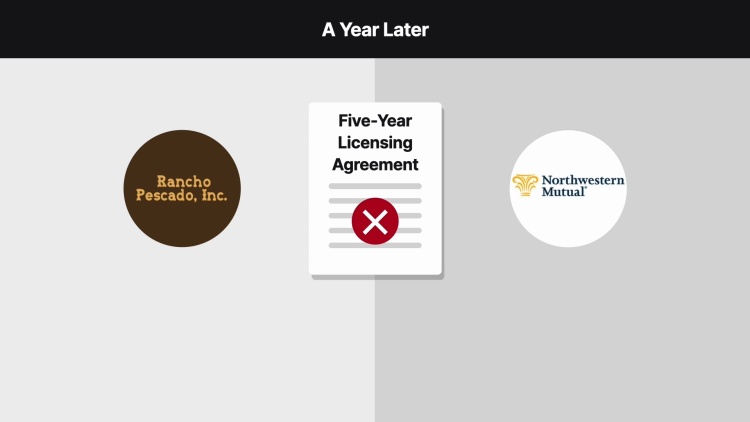Rancho Pescado, Inc. v. Northwestern Mutual Life Insurance Co.
Arizona Court of Appeals
680 P.2d 1235 (1984)

- Written by Josh Lee, JD
Facts
Rancho Pescado, Inc. (RP) (plaintiff) contracted with the Northwestern Mutual Life Insurance Company (Northwestern) (defendant) to license a portion of a waterway for five years for the purpose of raising catfish. RP had performed significant research on commercial catfish farming and developed a plan to farm catfish in a five-mile portion of the Gila Bend Canal in Arizona. RP conducted a brief pilot program in the canal with mixed results. Approximately four months after initially stocking the canal with catfish fingerlings, Northwestern terminated the license agreement, alleging that RP’s operation of the catfish-farming program interfered with the operation of Northwestern’s downstream ranch. Northwestern alleged that this interference was a breach of the license agreement. RP sued Northwestern for breach of contract. Several experts testified at trial that catfish farming was an exceptionally risky venture. Approximately 95 percent of catfish farms typically failed. The few that succeeded were generally experienced aquacultural farmers. Additionally, almost all catfish farmers raised catfish with a pond method rather than in flowing water. RP had arranged for a fish distributor to purchase all of the catfish raised in the canal. However, the distributor, Frosty Fish, did not have much experience selling catfish. Additionally, RP projected that it would produce eight million pounds of catfish each year, which was more than 11 percent of the total catfish harvested in the nation in 1977. The most successful catfish farmer only produced 400,000 pounds of catfish in his best year. Frosty Fish had only previously been distributing approximately 52,000 pounds of catfish per year. Frosty Fish planned to can a portion of the catfish but had never sold any canned catfish and had not heard of anyone who had done so. The jury found in RP’s favor and awarded $2.5 million in damages. Northwestern filed a motion for judgment notwithstanding the verdict, which was granted by the trial court to reduce the damages to $101,510. RP appealed to the Arizona Court of Appeals.
Rule of Law
Issue
Holding and Reasoning (Greer, J.)
What to do next…
Here's why 907,000 law students have relied on our case briefs:
- Written by law professors and practitioners, not other law students. 47,100 briefs, keyed to 996 casebooks. Top-notch customer support.
- The right amount of information, includes the facts, issues, rule of law, holding and reasoning, and any concurrences and dissents.
- Access in your classes, works on your mobile and tablet. Massive library of related video lessons and high quality multiple-choice questions.
- Easy to use, uniform format for every case brief. Written in plain English, not in legalese. Our briefs summarize and simplify; they don’t just repeat the court’s language.





